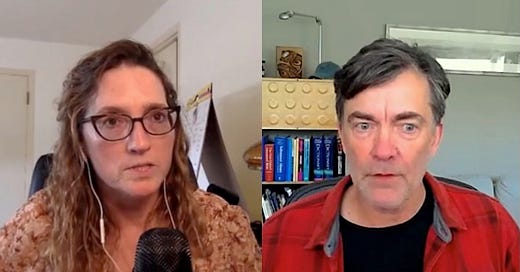“It's about redirecting them to positive sources of influence that over time can be cultivated to be intrinsically meaningful… to the point where the risk of re-engaging with their addiction isn't worth it because of what they now have to lose.”
–Julian Somers
What if our need for purpose and meaningful relationships is an evolutionary imperative? And what if addiction is our adaptative response to having to live without them?
How can we reconfigure this ‘maladaptive’ response when it’s actually serving our biological need to survive in a loveless world?
Drug overdose is now the leading cause of death among youth – 73 per cent of youth who died between 2016 and 2023 were clients of Ministry of Children and Families.
Healthy psychosocial integration may be the solution, according to Julian Somers, who says evidence overwhelmingly shows that it's possible to both prevent addictions and help people recover.
A clinical psychologist and Simon Fraser University distinguished professor, Somers has devoted his career to understanding people with severe addiction and mental illness caught in a cycle of homelessness and crime.
For four years, his research team followed hundreds of people living in the Downtown Eastside. They monitored their ongoing and historical interactions with the justice and health systems going back 10 years. A trajectory of circumstances and events emerged as risk factors or predictors, as much as a decade earlier, that their lives would one day spiral into crippling addiction and homelessness.
Yet Somers proved even those hardest-to-house individuals could be helped. Not by current public health policies of supplying addictive drugs and housing people in active addiction together in single room occupancy (SRO) facilities without adequate supports. Instead, Somers and his team found homes for them throughout the city in regular buildings and connected them with healthcare professionals and an intense regime of psychosocial integration.
Compared to a control group living in congregate SRO-type housing with similar supports, the people Somers’ team placed in scattered housing had 71 per cent fewer criminal convictions and 45 per cent fewer medical emergencies in the first year.
“For one group of people [doctors, pilots, nurses, public servants]… we focus intensively on psychological and social forms of support, and the outcome is abstinence from drugs.
This other group [people living in poverty] we put them all together in buildings with each other… not attending at all to psychological and social forms of intervention. And the outcome that we mostly look at is … continued use of drugs that we provide to them.”
Somers says everyone has the capacity to change, but they have to be helped earlier, and supports must leverage their inate biological need for human connection.
Julian sat down with me this week to talk about this and more. Have a listen and let us know what you think.
If you’re not a paid subscriber yet, consider becoming one – support independent journalism! All revenue goes to our talented freelance writers at NorthernBeat.ca.
Thanks for tuning in.
Fran
Podcast producer: Rob Shaw
Feedback: Fran@NorthernBeat.ca














Share this post